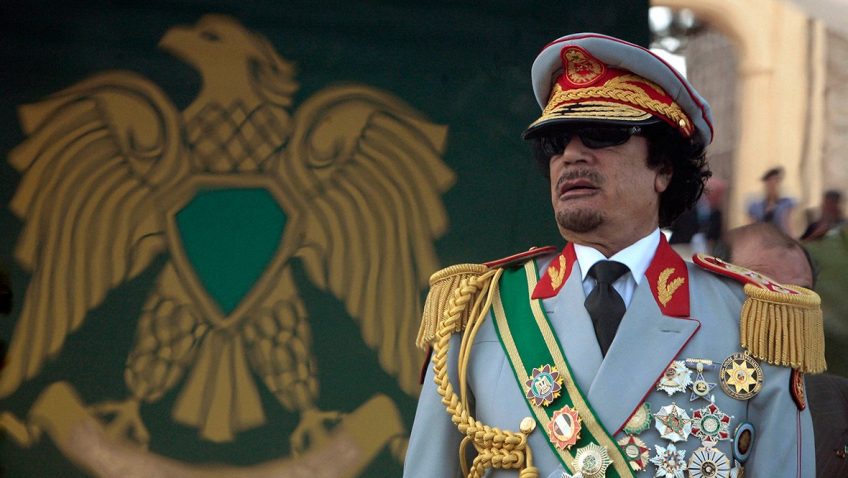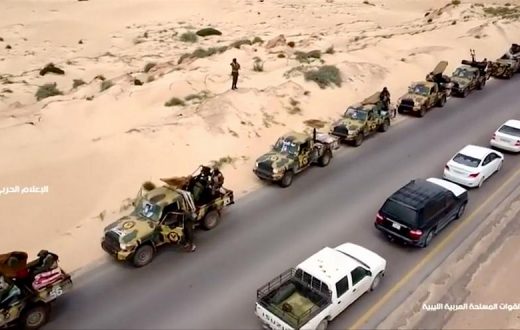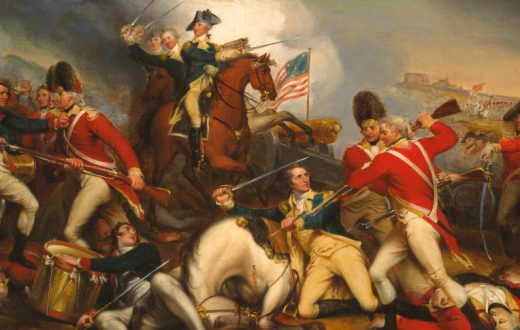The Libyan Conflict that started in February, 2011 over what is claimed to be peaceful protests by the Libyans against the wrongful arrest of the human rights lawyer, Fethi Tarbel, set off a chain reaction that has impacted the entire region, and contributed extensively to the international migrant/refugee crisis. This piece attempts to analyse what really caused this, or was this even legitimate to begin with.
Muammar al-Gaddafi has been accused for many years of violating human rights by mostly the Western-based media, from the shooting down of a plane over Lockerbie to extensive torture by the regime in the maximum security prison, Abu Salim.
Gaddafi took over in a bloodless military coup in 1969, dissatisfied by the weak policies of the King Idris I, seen mostly as a Western puppet, and highly inspired by the Egyptian leader Gomal Abdel Nasser, the pan-Arab nationalist and socialist. Following his ascent to power, he ruled Libya till 2011, when he was killed by a French airstrike on his fleeing convoy.
Libya under him enjoyed great prosperity and benefits. It went from one of the poorest nations in Africa to the richest, with a GDP of $75 billion in 2010, and a per capita income of over $12 250. Libya under him enjoyed free education, health, electricity and interest-free loans; women were paid $5000 on the birth of each child, and the Human Development Index of Libya was highest in Africa, with the oil-rich state being fifty-third most advanced state in world by the UNHDR 2010.
Libyan form of governance under Gaddafi included decentralisation of power, with three main bodies introduced: the Local Committees, Basic People’s Congress, and the Executive Revolutionary Council. The Basic People’s Congress not only had elected representatives, but all common Libyans openly attended, even allowed to individually voice their opinions and concerns directly; there have been instances where Gaddafi’s proposals were rejected by the Congress. For example, he wanted to abolish capital punishment, but since it was rejected by the Congress, the death penalty remained.
Gaddafi is also notorious in having expelled and closed British and American military bases, despite the aid the impoverished state was then receiving in exchange, and also demanded a greater share in the oil production from the oil extracting companies, all of which were Western.
Libya after Gaddafi
Post-Gaddafi, Libya has descended in chaos not unlike Syria, though Syria is still holding on by a single, however-fragile thread. Not so for this war-ravaged country that has spiraled from protests to civil war to becoming a hotbed for terrorists and thriving slave markets.
Major events that immediately followed Gaddafi’s death are briefly touched upon:
i. Egypt, Tunisia and Algeria have closed borders with Libya.
ii. Currently, Libya has two governments in the west (ISIS) and east (anti-Islamist government in Tobruk) of the state, with no functioning army, national police, et cetera.
iii. The northern coast of the state is a hotbed of human trafficking, with people fleeing any way possible.
iv. Refugee crisis: more than six hundred-thousand people are internally displaced, more than five thousand fled to Europe, while, as Barbara Slavin of Al Monitor reported, more than two million refugees are in Tunisia alone. (That accounts for more than twenty per cent of total Libyan populace.)
e. The main city, Sirte, is a breeding ground for terrorists, with ISIS having opened training camps for recruits.
Given the above situation, many have questioned the logic of NATO intervention in the Libyan Conflict, and even the legitimacy of it all.
First let’s sketch the causation of the conflict, with Arab Spring, an international-scale event largely considered by many as the basis of conflict in Libya, too.
Following the ouster of Zine El Abidine Ben Ali in Tunisia, and similar protests against the Mubarak regime in Egypt, Western mainstream media claimed this as laying the framework of what would later be called the Arab Spring, a series of states across Middle East and northern Africa rising against their dictators.
Timeline of the Libyan Conflict
February 11th, 2011: protests in the port city of Benghazi, a strategically located city quite close to Europe.
March, 2011: UN Security Council Resolution 1973 implemented over Libya.
June, 2011: International Court of Justice issues warrant for Gaddafi for crimes against humanity.
August, 2011: Tripoli captured by the NATO-backed rebels.
October 20th, 2011: Gaddafi captured after French airstrikes on his convoy; accounts of how he died differ.
In just a period of eight months, a powerful dictator was dethroned by a bunch of rebels poorly equipped, weekly united, and lacking financial capability compared to the estimated wealth of the Gaddafis.
Why was France so persistent in the Security Council of deploying military help when even the US and Germany were hesitant? Was it really the security of the civilians that the ’73 Security Council Resolution was enforced? Why did oil production start immediately after election of new government, when the promised new constitution was still not made, years on – something that is supposed to be of higher importance?
There are multiple explanations for this.
1. Oil
Due to multitude of reasons, from embargos in ‘80s to own policies, oil is still fairly untapped in Libya, with known largest reserves in Africa, estimated at 46.4 billion barrels.
2. Low population:
A country with a low population of only six million is fairly easy to control, should a foreign-backed government be installed. Suppression of any revolt can quickly be curbed as well with such a small population dispersed over vast swaths of land.
3. Geographical location:
Libya is strategically located, a gateway to Africa and Europe. Right above Libya across the Mediterranean Sea is Italy (hence, why Libya was once an Italian colony). Unlike Iraq, it’s far easier to transport oil from the port of Benghazi and even Tripoli to Europe much more quickly, and without much hurdles that come with respect to distance.
4. Gold-based economy for whole Africa:
Gaddafi is infamous for having alarmed Western leaders when, in an annual meeting of the African Union, he proposed the formation of ‘United States of Africa’, and having a single currency for the whole continent, based on the gold Dinar.
In one of the many notorious e-mails leaked by Wikileaks of Hillary Clinton from her illegal private server, an e-mail dated March 27th, 2011 from Sydney Blumenthal – a long-time close adviser of the Clintons – to Hilary Clinton goes:
Under attack from the Allied and Naval Forces. The Libyan Army troops have begun to desert in increasing numbers. The rebels are making an effort to greet these troops as fellow Libyans, in an effort to encourage additional defectors.
…Speaking in strict confidence, one rebel commander stated that his troops continue to summarily execute all foreign mercenaries captured in the fighting…”
Another e-mail by Blumenthal goes:
Gaddafi’s government holds 143 tons of gold, and a similar amount in silver… This gold was accumulated prior to the current rebellion and was intended to be used to establish a pan-African currency based on the Libyan golden Dinar. The plan was designed to provide the Francophone African Countries with an alternative to the French (franc)…
…According to knowledgeable individuals this quantity of gold and silver is valued at more than $7 billion. French intelligence officers discovered this plan shortly after the current rebellion began, and this was one of the factors that influenced President Nicolas Sarkozy’s decision to commit France to the attack on Libya…
Points to ponder: “…Speaking in strict confidence, one rebel commander stated that his troops continue to summarily execute all foreign mercenaries captured…”
At first the term ‘all foreign mercenaries’ might not induce any alarms, unless one manages to look at the issue closely. As multiple news sites reported, an entire town Tawergha had its thirty thousand dark-skinned inhabitants suddenly vanish till August 2011 – this was after the NATO-backed rebels had seized control of the area. Sub-Saharan Africans were ethnically cleansed in rebel-ruled Libya after the fall of Gaddafi as has been extensively reported and documented. Gaddafi was known to have preferred the darker-skinned Libyans, and even given them higher posts in government, in what was a series of reforms he brought. Arab and ethnic African tensions are critically high throughout the northern Africa.
And, as Anne-Marie Slaughter confessed to The New York Times, far from protecting civilians as the NATO kept claiming, they rather provided a cover to the rebels as they brutalised civilians and Gaddafi loyalists. Amnesty International’s Sep. 2011 report told of how rebels and Gaddafi’s forces alike tortured captives. Seamus Milne of the Guardian records how during the siege of Sirte, haphazard rounds were fired into the city where normal civilians and Gaddafi supporters were enclosed. Even after International Red Cross told about medical supplies running out within the city, NATO-rebel joint attack continued for the next three weeks.
So the claim that the NATO, particularly France, aided rebels for the express purpose of protecting the civilians falls short.
With respect to the constant human rights abuses Gaddafi had been accused of by mostly the mainstream Western media, another e-mail to Hillary Clinton from Blumenthal talks about how an “extremely sensitive source” relayed the fact that British, French and Egyptian special operatives units were training Libyan militants within Libya. By 27th March, 2011, these special ops were supervising the transfer of weaponry to the rebels. (“…a seemingly endless supply of AK47 assault rifles and ammunitions…”)
Not only alarming here is the training and the arming of the rebels, but the fact that before even the Conflict had begun, the NATO troops were already on Libyan soil.
Then there’s the deep interest of French in the conflict. As the e-mail goes: this was one of the factors that influenced President Nicolas Sarkozy’s decision to commit France to the attack on Libya…
France was the one to constantly push for open military involvement in Libya, when even US and Germany exercised caution; it was France that sponsored the ‘no-fly zone’ over Libya in the UN Security Council, and it was a French airstrike that attacked the fleeing-convoy of Muammar al-Gaddafi.
In an e-mail sent on 2nd April, 2011 from Blumenthal to Hillary Clinton, subject ‘France’s client and Qaddafi’s gold’, Blumenthal goes: It is understood France has clear economic interests at stake.
The very first line of the e-mail goes: A high ranking official on the National Libyan Council states that factions have developed within it. In part this reflects the cultivation by France in particular of clients among the rebels. General Abdelfateh Younis is the leading figure closest to the French, who are believed to have made payments of an unknown amount to him. Younis has told others on the NLC that the French have promised they will provide military trainers and arms.
Blumenthal goes on to mention how despite freezing of Gaddafi’s assets, he still has enough “bottomless financial resources to continue” fighting the rebels.
Of interest here: Sarkozy’s plans are driven by the following issues:
a. A desire to gain a greater share of Libya oil production,
b. Increase French influence in North Africa,
c. Improve his intemai(sic) political situation in France,
d. Provide the French military with an opportunity to reassert its position in the world,
e. Address the concern of his advisors over Qaddafi’s long term plans to supplant France as the dominant power in Francophone Africa)…
Blumenthal very clearly outlines France’s interests in the region and the conflict, especially given how the death of Gaddafi is in their favour.
Gaddafi had gone from an Arab National in his early days to preferring an independent and economically strong Africa by end of his life. He was president of the African Union, where he proposed the switching over to the gold-based economy, a single currency for whole of Africa, and a formal ‘United States of Africa’; something that, if even one of them were to be implemented, would have spelt disaster for the European banking system, whole of US economy that’s dependent on the petrodollar, and an end to the hegemony of West and influence in Africa.
France also receives nigh on seventy-five per cent of GDP of some African nations that are its former colonies. The sub-Saharan Francophone nations, like Liberia to its colonisers in past, has to pay a ‘colonial tax’. Any African state that in past tried to get out of this strangling mess paid a hefty price. From Sékou Touré of Guinea in 1958, when he so much as announced wanting to leave the French Colonial Empire, to Sylvanus Olympio – first president, Republic of Togo – who paid the price with his life, when the president opted out of the French currency, and minted own. A coup shortly followed (three days later) where a few African soldiers led by a former French Legionnaire officer stabbed Olympio to death.
So, the minting of not only African nation’s own currency, but also gold-based would have greatly dismantled the franc.
Not surprisingly, oil is the number one point in the e-mail, the black gold that drives world economy. And, as already highlighted above, Libya has billions of oil reserves untapped.
The country’s – and by extension Gaddafi’s – only fault in this matter seems to be the fact they happen to be standing on a land who’s natural resources led to their death and decimation.
Given all above, Libyan Conflict and the murder of Gaddafi can only be classified as economic and strategic interests of elite that saw the brutal death of a leader that only wanted best for his people, the displacement and death of millions of innocent citizens, the spread of terrorism, and the black=market sale of high-tech weaponry of the Libyan forces and the ones given to the rebels in places as far off as Syria, Chad, Mali et cetera.




